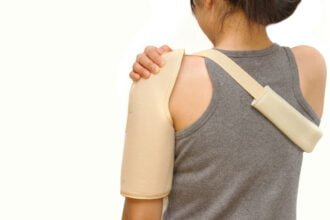Transparency, I think that is what pissed me off so much. Or rather the opaqueness. Got me to post again, though, right? Well, don’t get used to it.
The message was clear: We are heroes, we are giving you lifesaving nuggets of information. And Gina Kolata swallowed it, hook, line and sinker. No pushback, no critical thinking, just drooly awe. I get pissed about stuff like that. Yes, I do.
Transparency, I think that is what pissed me off so much. Or rather the opaqueness. Got me to post again, though, right? Well, don’t get used to it.
The message was clear: We are heroes, we are giving you lifesaving nuggets of information. And Gina Kolata swallowed it, hook, line and sinker. No pushback, no critical thinking, just drooly awe. I get pissed about stuff like that. Yes, I do. Am I the only one who sees the hypocrisy? The comments would suggest otherwise, but my reasons are a bit different from some of what I saw: we cannot scapegoat pharma for this one, folks.
The headline read“Lower Blood Pressure Guidelines Could Be ‘Lifesaving,’ Federal Study Says.” There has been a lot on triggers and trigger warnings these days in the press. Well, let me contribute to the discussion. If you know me, you know there are multiple “triggers” in that title for me; there really should have been a trigger warning. “If you have seen through cherry-picked data before, if you have seen through disease mongering, if sensationalized medical headlines induce vomiting in you, beware of triggers in this headline.” And, by the way, the study will not be published for another couple of months, so who has vetted these data? The investigators who are so incredibly invested in the results? Their PR office? Journalists hungry for a story? Laughable!
So, “triggers.”
First: Lifesaving. Very few things in life are lifesaving. Under the right circumstances, a parachute is indispensable for saving a life. A surgery can save the life of a traumatized human. An EpiPen can be lifesaving. There are just not that many circumstances in which medicine can really claim saving lives. Most of the strides we have made in extending life expectancy did not come through pills, contrary to breathless reports. We owe them to public health interventions – clean water, sewage treatment, vaccination. Even if you look at the current causes of premature death in the US, it’s largely unrelated to medicine. Believe it or not, only 10% of premature death can be attributed to not having access to medicine. The remaining 90% is just what you would think: genetics, behavior, environment and economics. Yes, money, or its flip side, poverty, contributes generously to early mortality in the US. So if you invoke “lifesaving” in a headline in the context of a medical intervention, the burden of proof in on you. But I guess the public bears the burden of credulity. And that pisses me off.
Second: “Lower blood pressure guidelines.” So what they are telling me is that they have found evidence that getting one’s blood pressure into a lower range (systolic 120 mmHg or below in this study) than what is currently recommended (systolic 140 in people 30-59, and150 mmHg in those over 60) will save lives. OK, what is the next obvious question? If you are me, there are several. One: Is this true for everyone over 50 (this study’s population) with high blood pressure? Is it true for my 80-year-old mother just as much as for a 55-year-old African American man who also has diabetes? And what about that 62-year-old executive whose stressful job occasionally throws her into a hypertensive paroxysm? Two: How much does it reduce any given person’s risk for dying and over what period of time? To say that it reduces the risk of death is meaningless. We will all die eventually. As much as we like to split hairs about pre-diebetes, we prefer to remain silent on that much more prevalent chronic condition of humanity – pre-death. So, in the case of my 80-year-old mother, how much will it reduce her risk of dying, and over how long – 10 years, 20 years, more? Does it even make sense to ask these questions given that age puts us at risk for death from many causes at the same time? The question is much more relevant for the 55-year-old African American man, of course, but the headline, and, alas, the story fail to tell me this detail. Three: Was the observed mortality benefit even due to the blood pressure difference? That is, how well did they succeed in treating each group to their designated blood pressure target? These answers can only come once the paper becomes available. Right now we just have to take their word for it. And you know how much that appeals to me, right?
Third: The story made a reference to a 25% reduction in mortality. If it meant that everyone has a 100% chance of dying, and now this risk is down to 75%, well, that may be lifesaving. However, even the most optimistic among us surely cannot think that this is what this number means. In fact, what this number means is that whatever your risk is today of dying in the next 5 years, say, by keeping your blood pressure at or below 120 will reduce it by 25%. Someone like me, I would guess, has a risk of dying over the next 5 years. Reducing this risk by 25% gets me into a 3% range. Some may say that this is substantial. Others, me included, will ask another question.
Fourth: At what cost? And I have to say, the investigators along with Kolata thought of that. They indicated that these drugs are pretty cheap, as 90% of them are generic. Boom! All set, right? Wrong. Side effects are costly (the article skirts this issue). And not just in dollars, but in quality of life, in whether or not you can get out of bed to take care of your children, whether or not you can give a 30-minute talk at a conference without either running out to the bathroom or wetting yourself, in whether you increase your risk of passing out or even of having a stroke by dropping your blood pressure too much, in whether you injure your kidneys by the same mechanism. And to be fair, as a part of the study, the researchers are looking at least at some of these important questions. But here is the kicker: those data are still being analyzed. So even the investigators don’t know what is on the other side of the risk-benefit scale. It means that in essence, they are touting something as “lifesaving” without telling us in whom, how lifesaving, and what the trade-offs may be.
And oh, here is one last question that comes to mind for me:
Fifth: Did GSK sponsor this study? I ask that with my tongue firmly in my cheek, because I know that this study had federal funding. It was our tax dollars, on the order of $10-20 million, I am guessing, that picked up the tab. Why is my tongue in cheek? Because if GSK had put out a news release like this, not even the East Podunk Times, let alone The New York Times, the paper of record, would have been stupid enough to print it. Because pharma, right?
So what is the moral? There is more than one, take away what you will. What stands out for me is that we have become blind. I am not an industry apologist – there is history there, which I am not interested in rewriting. I am also quite realistic about investment in pharmaceutical business as a vehicle for wealth in the US. However, in this hunt for lies and liars, another head has popped up on the hydra. While we weren’t looking, academic researchers somehow became more interested in their 15 minutes of fame than in the integrity of what they present to the world. And, as far as we think we have come away from accepting paternalism in medicine, we are right there to worship them.
Why does this piss me off so much? I don’t know. Perhaps the arrogance. Perhaps because it makes me sad to see that my fellow researchers can be either so blind or so ambitious as to push out something so unfinished to media vultures looking for “lifesaving” meat. Perhaps I feel for my former colleagues in their offices, who will now need to deal with spikes in anxiety and even blood pressure in their already hypertensive elderly patients, and are now in a position to leave that anxiety unaddressed in this age of the incredible shrinking appointment that has done away with nuanced relationship-nurturing conversations. Perhaps I feel for them even more because they too will feel more anxiety in this unforgiving world of 21st century medicine in America, where their hides depend on meeting “quality metrics” built on half-baked data like those reported in Kolata’s story. And finally, and most importantly, I feel for the patients, who, without knowing it, are the true subjects of this experiment in American medicine, where docs are beholden less and less to the individuals in front of them and more and more to the gluttonous bureaucratic machine that is swallowing their humanity. It is beyond time to stop this madness.
If you like Healthcare, etc., please consider a donation (button in the right margin) to support development of this content. But just to be clear, it is not tax-deductible, as we do not have a non-profit status. And I only post when I feel like it. Thank you for your support!






